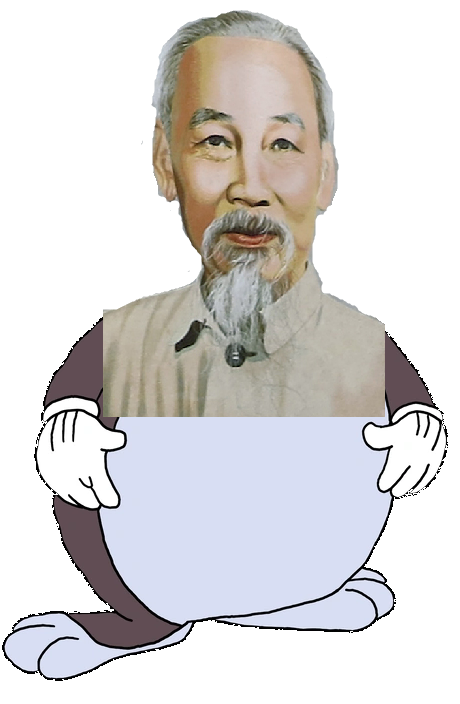The Japanese used it plenty during the Second Sino Japanese War and in the Pacific War against the Allies as well. To some degree of success in China, mainly because the Chinese were lacking in firepower to stop the Banzai charges (machineguns were not THAT common, especially early KMT) and so their positions were overrun. In the Pacific however it was much different, there are countless of Banzai charges that met the .30 cal machineguns and the BARs of the Marines that ended there, short of accomplishing anything worth of note. A few of them were "somewhat successful" in the sense that they managed to overrun a company or two or put a battalion under the brink of being shattered, like it happened with the 4000 men strong Banzai charge (even severely wounded soldiers joined the human wave) at the closing stages of the Battle of Saipan.
But was it used due to it's tactical significance, as allegedly perceived by Japanese officers? maybe not, some of them strictly forbade any senseless banzai charges like Tadamichi Kuribayashi did during the Battle of Iwo Jima, others maybe saw it as a way to "die in a blaze of glory" or some cringe shit like that. Kuribayashi himself allegedly died during one last charge on US positions, but instead of being just mindless charge, it was well executed.
I think there were other instances were troops launched human wave assaults, but maybe it's something that happens "in that moment" and not a viable tactic discussed by the military of said nation. I think it will still happen in some sort, but you'd prefer something else.
this begs the question of what the difference really is between assault/infiltration tactics and 'human wave'
The only difference is "Do I have a positive opinion of its user?"
Eh depends on the assault tactic. Like charging a trench in WW1 was just as suicidal, but not exactly a human wave in the sense that most made it to the trench, but died in hand to hand combat. If the attack itself is meant to likely fail but cause casualties, that is different from a delaying action or a charge.
Or maybe the difference is "was it intentional", like the charge of the light brigade was a human and horse wave attack but it was VERY much not intended to be one
Good answer. It wasn't the tactic of a given army, and sure wasn't something favored by anyone ahead of time. If something akin to a human wave attack happens it is desperation, or very specifically intended to cause psychological distress on the enemy.
Take Gettysburg, Pickett's charge? human wave attack arguably, the bayonet charge like a door swinging the 20th Maine did? proper charge not a continued assault to their deaths.
There are certainly actual examples of it, but a lot of it is propaganda, particularly when it's supposedly communists doing it.
The reason why people would pick that particular bit of propaganda here has to do with fascism (or more broadly, beliefs in your supremacy over others), which faces a pretty serious practical contradiction - actually winning a war typically requires you to take things seriously and properly evaluate your enemy's capabilities... except fascists are fundamentally detached from reality for ideological reasons. There was the classic line from Eco's essay that "Fascist governments are condemned to lose wars because they are constitutionally incapable of objectively evaluating the force of the enemy". Why would you take your enemy seriously and prepare for the fight when you believe them to be literally beneath you, as a living being?
However, some of the smarter fascists realize this, and try to address it - and one of the ways they do it is with the idea of the enemy being a great horde. This way, you can still maintain the key fascist belief - in a one-on-one battle, obviously our guy would mop the floor, but the problem is that those other guys... there's just too many of them. And they fight dirty - being... well, inferior, they obviously lack positive values such as honor, so they'll just send their guys at us in waves, with a callous disregard for their lives (I remember there being some US general during Vietnam, who was questioned about whether the incredibly high casualties from bombardment might be somewhat counterproductive and driving people towards the Viet Cong... and he basically said "you see, there orientals simply have different values about life and death, so they don't really care about their loved ones dying as much as we would". I think it may have been the RevLeft episode on Vietnam where I heard that one, don't remember).
So, that way, you get to still take your enemies as a serious threat, but without having to question your supposed superiority.
I’ve heard it allegedly happened in the Iran-Iraq war, but I don’t know if it’s true or not.
It happened in the final Hunger Games movie and also in Futurama
You're not allowed to shitpost in c/history? cringe. It is my god given right as a hexbear user to shitpost in whatever comm i want
That only happened in the first year or so. After a while even the bloody mindedest European generals realized it was futile to charge machine guns and they settled in for trench warfare.
Lmao human wave attack is the oldest move in the book and it doesn't always work, but when it works it works. The Chinese overwhelmed tanks and surrounded infantry during Korea.
Not a military guy, but I could see how it might be effective if your opponent isnt entrenched and doesn't have access to heavy firepower (artillery, close air support, armored support), it might be an effective tactic.
The Chinese overwhelmed tanks and surrounded infantry during Korea.
No, what the Chinese did was sophisticated infiltration tactic where they form their infantry into small highly mobile squads that'll close in into enemy position with stealth, then attack in repeated cycles of alternating squads.
This gives the impression of the Chinese throwing endless horde of soldiers when in reality the Chinese unit is often no bigger than their opponent.
pretty sure china just released a big movie on the korean war lol, sure they have some tactics shown in it
It was something I picked up from military forums but the wikipedia page on human wave actually points this out.
suvorov was probably the biggest proponent of this sort of strategy, mostly because he found guns to just be fancy doodads
he said "The bullet is a mad thing, only the bayonet knows what it is about."
his strategy did win them a lot of fights so... probably had a point at the time. though a lot of his tactics revolved around getting the enemy to blow their load too early and then just stab them while theyre busy reloading
Most charges by the Soviet Union were done after like 2 whole days of shelling the position so what remained of the enemy was stunned, sleep deprived, and disorganized so they wouldn’t be able to put a much of a fight if any when the charge did happen
Yup the creeping barrage. It was more of a thing in WW1 to get rid of the literal miles of barbed wire so densely packed that a rabbit could hardly get through. They had to legit pound the wires with shells for days before they would be maybe able to move. By WW2 you had functional communication, better understandings of where your forces are as they move, and more barrages going after actual enemy formations rather than clearing wires
A large part of this weird movie bullshit is people taking quotes from witnesses and ignoring the context, or taking them too literally.
For instance, in WW II the Soviets wouldn't give the Nazis time to rest or fortify if possible. They would often send smaller harassing attacks to deny them time to rest or dig more trenches, knowing these attacks wouldn't gain ground because they didn't have enough troops in the area yet.
So there are many accounts of Nazis talking about endless unsuccessful Soviet assaults that gained no ground. Which out of context sounds like something that it's not. Not so say this is an innocent mistake portraying the Red Army this way, it's intentional.
Napolian did it, he bragged about it.
That is just what you call using irregualrs against a well equiped force.
Haitian revolution was pretty brutal in that respect right? Shitloads of farm implements vs guns
No army in history has ever used human wave tactics. It is only something that people accuse their opponent's army of doing. Wasting lives, in of itself, isn't a strategy.
When it comes to WWII, the American public perception of the Eastern front has been essentially been written by the losing German generals. Halder, Donitz, etc., all wrote memoirs that were popular in the US while the cold war froze out the Soviet perspective. And what do you know...the generals realized they did everything right, Hitler was holding them back, and the only reason Germany lost was because Russia cheated by fighting back.
The German army before WW2 was constrained to a tiny size by the Treaty of Versailles so the German army spent a disproportionate amount of resources to keep an elite force with skilled officers. The Soviet Army was enormous and there was no experience and no trust in their officers and many were purged. The Soviet Army made mistakes during the war but they learned from those mistakes and made new strategies to compensate for their temporary weaknesses. Within a year, the veteran German officers were dead and the Soviets had experienced leaders and competent logistics.
Unlike the German Army, the Soviet officers had little experience (both generals and lower rank officers) and they could not be relied upon to take the initiative. Therefore, tactics were kept as simple as possible and the objectives of tactical maneuver took place at a "higher" level, with sophisticated strategy and multiple simultaneous battles which shocked and incapacitated their enemies. The Soviet doctrine placed a lot of emphasis on defensive battles, fortifications, and using superior firepower to not waste Soviet lives and instead efficiently drain the opponent's ability to wage war.
To an individual soldier in a battle, I think it could feel like human wave tactics, but as you say, the same is true of Gettysburg and the Somme.
Steven Kotkin knocks down many of these sorts of myths one by one in this fantastic lecture. He is a respected mainstream historian and anti-Stalin and anti-communist so it gives you an idea how much mainstream historians reject the framing.
https://youtu.be/1NV-hq2akCQ





